Bollywood and Lollywood come together in Scottish film
- Published
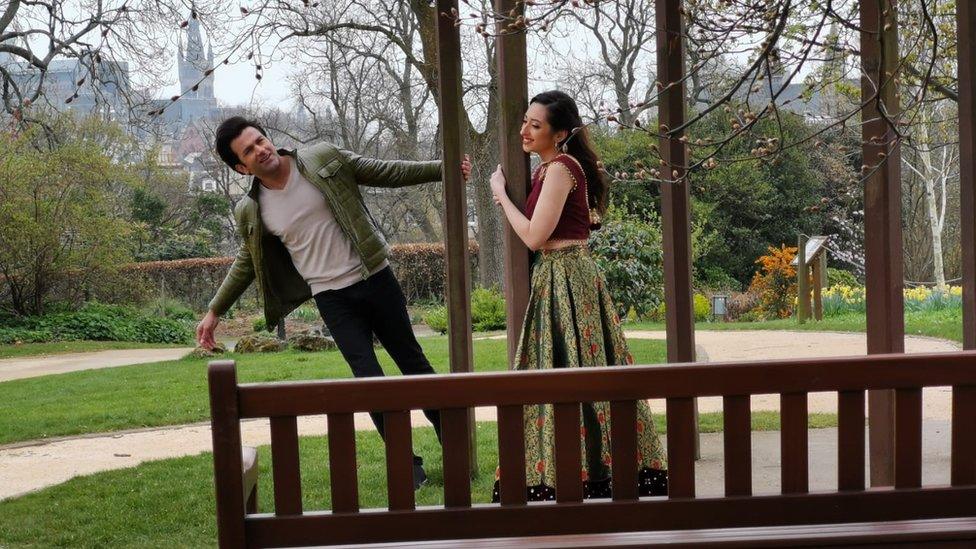
Elysee Sheikh stars in Sacch, a Pakistani film set in Scotland
A new film shot entirely in Scotland has brought in talent from Pakistan and India to showcase the best of Bollywood and Lollywood movies, according to its director Zulfikar Sheikh.
He said he had produced 17 serial dramas for Pakistani TV, all set in Scotland, and had always wanted to make a film.
"The idea is to bring the two communities together from India and Pakistan," he says. "They can't work together in their own countries so we have to bring them over here."
The film, Sacch, opens at selected UK cinemas, including Glasgow's Silverburn Cineworld, from Friday.
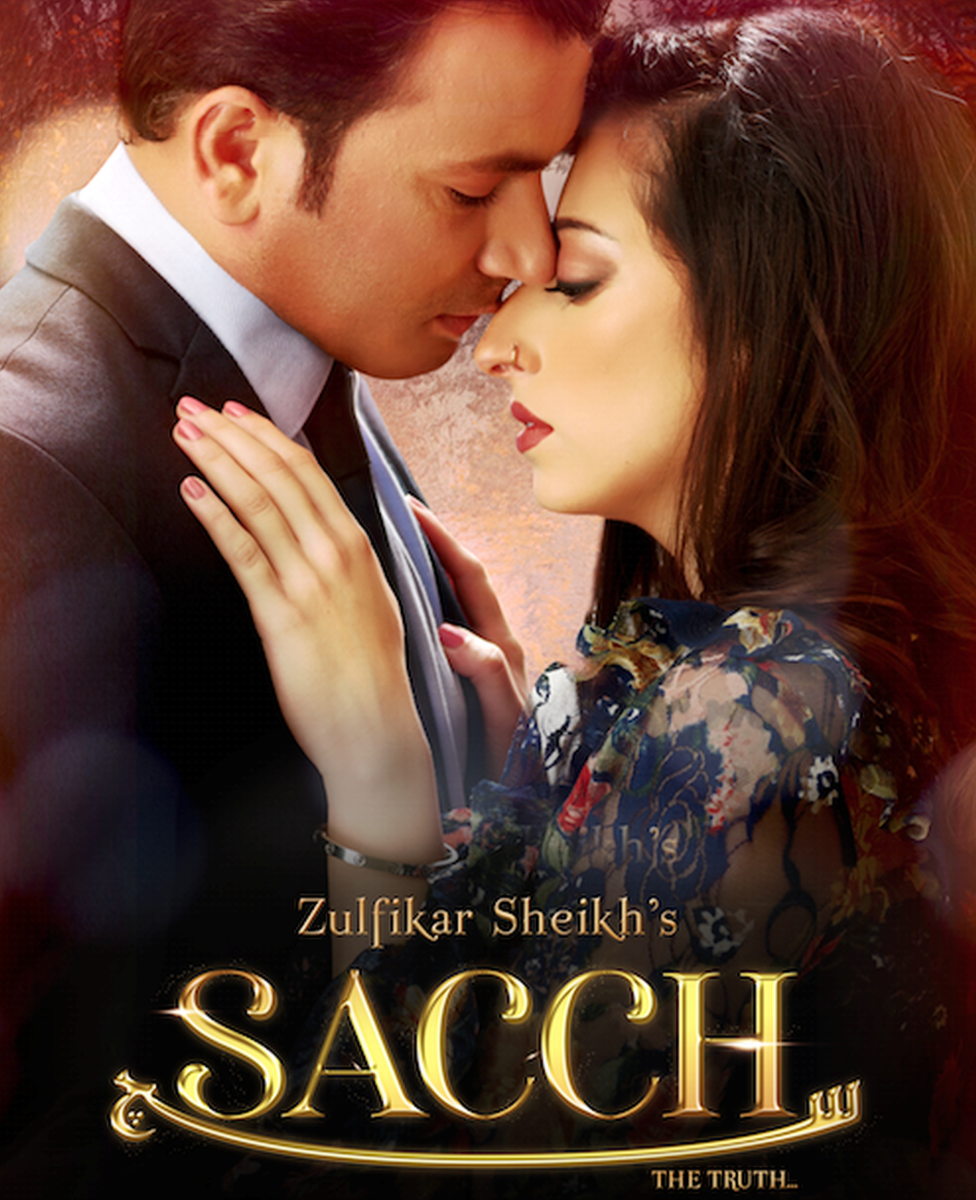

The film is scripted by Bollywood screenwriter Kumud Chaudhry and has dialogue by Pakistani playwright Haseena Moin.
Moin's only credit on a Bollywood film was Raj Kapoor's Henna, which was released in 1991.
The film was a box office success and was chosen as India's entry for the Best Foreign Language Film at the Oscars but Moin removed her name over tensions between Muslims and Hindus after a mosque bombing.

What are Bollywood and Lollywood?
Bollywood is the nickname given to much of the Indian film industry.
The B comes from Bombay (now known as Mumbai), the base for the Indian Hindi-language film industry.
Bollywood makes up to 800 films a year - twice as many as Hollywood.
The most well-known type of Bollywood film is "masala" which combines songs, dances, love triangles, comedy and dare-devil thrills.
The scripts are usually written in an unadorned Hindi-Urdu, known as Hindustani, which would be understood by the largest possible audience.
Much of the Pakistani film industry has traditionally been based in the city of Lahore and is now often referred to as Lollywood.

First Pakistani film
The new film is produced by the director's wife, Tasmina Ahmed Sheikh, the former SNP MP for Ochil and South Perthshire.
She says: "As far as we know this is the first Pakistani movie shot in Scotland."
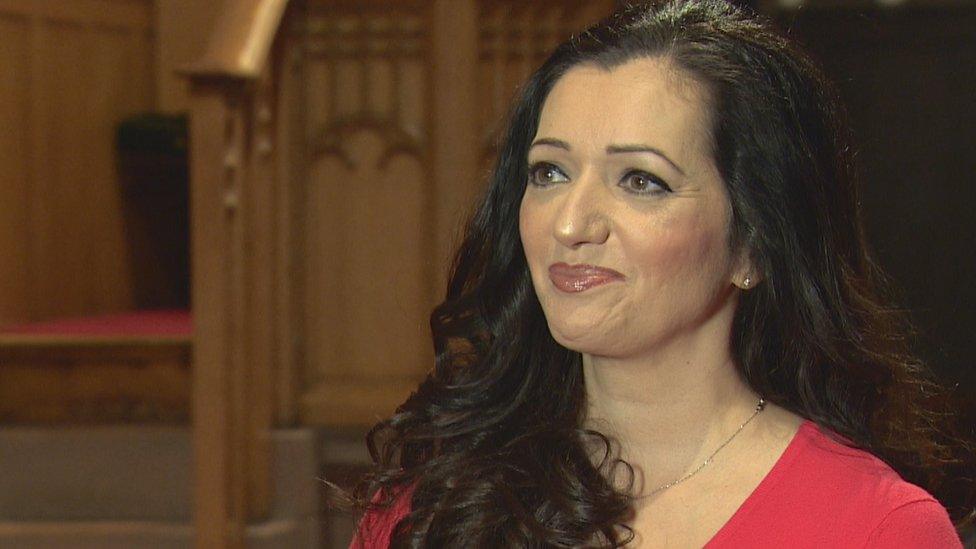
Tasmina Ahmed Sheikh produced the film
Ms Sheikh is the daughter of an academic and an actress who toured with the Royal Shakespeare Company.
She grew up in Edinburgh and studied law at Strathclyde University in Glasgow.
She says that soon after her marriage in 1993 she appeared in Des Pardes, a drama portraying Scottish-Asian life, directed by her husband.
After that she returned to the law, working as a solicitor and later as a politician.
Most recently, she had been a producer and presenter on The Alex Salmond Show on RT.
She has now returned to working with Zulfikar, producing a "feelgood" movie in the best traditions of both Indian and Pakistani films.
"We wanted to produce something that young Scottish Asians could watch as well as an elder generation and indigenous Scots," she says.
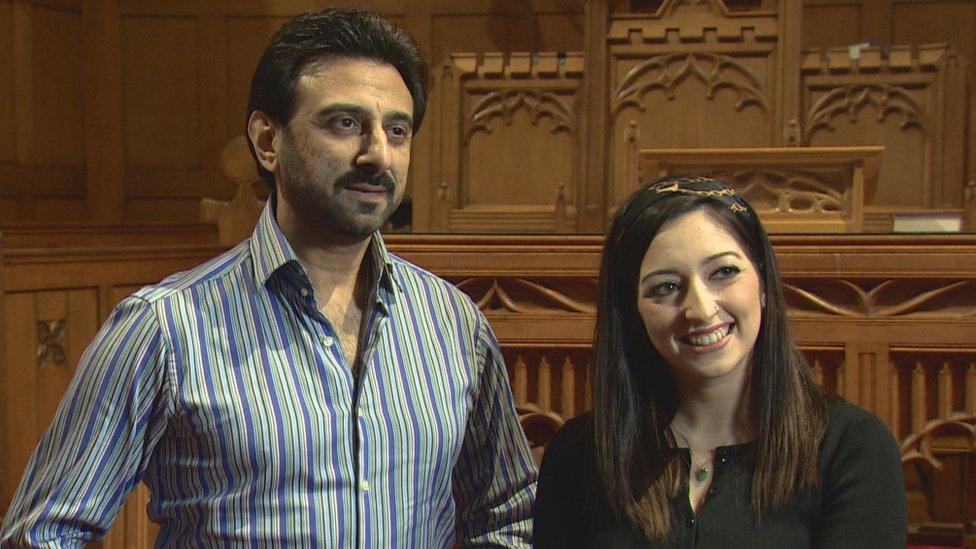
The film's director Zulfikar Sheikh and his daughter Elysee
"It does not matter what colour your skin is, where you come from, what religion or none, the issues you face are exactly the same.
"I also want young Asians to feel proud of their background and not ashamed of it."
She also says that the film has a strong female presence both behind the camera and in front of it.
One of the stars is her daughter Elysee, who, as well as acting, has just finished a Masters in microbiology.
Elysee says she always wanted to be a scientist but took acting and musical theatre classes at the Royal Conservatoire in Glasgow.
"When the opportunity came around to do the film I actually said 'no' initially because I wanted to focus on my studies," she says.
"But then I thought this might be my big opportunity to be able to do both things that I love in my life."
Sacch, which means truth, combines a family secret with a love triangle.
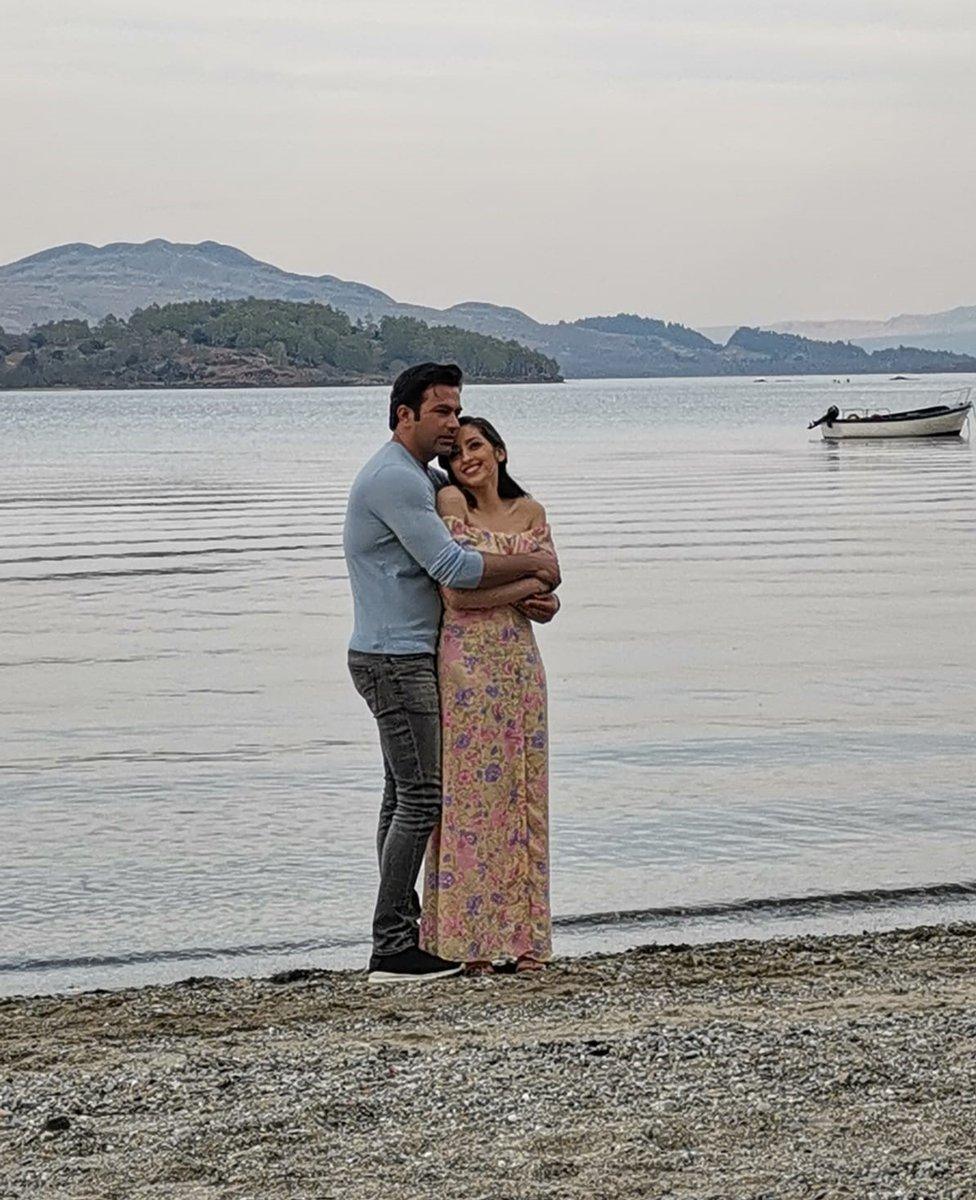
Loch Lomond is one of the locations used in the film

The film tells the story of a Pakistani-Scottish man with two sons who do not know each other and who fall in love with the same woman.
Like the best of Bollywood and Lollywood films there is music among the drama and spectacle, says Zulfikar Sheikh.
He says: "Bollywood or Lollywood films are very musical. In this particular film we have five songs, we had to edit one out because there were too many."
He says that his previous TV serials were mainly shot in the Highlands but for the film he had used locations around the central belt, mainly Glasgow.
The city's Pollok Park and Kelvingrove Museum feature in key scenes.
Other locations include Loch Lomond and the Forth Road Bridge.
Zulfikar Sheikh says there is a lot of Scotland on the screen but he would love to make more films so the world could see the great locations the country has to offer.